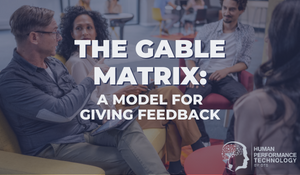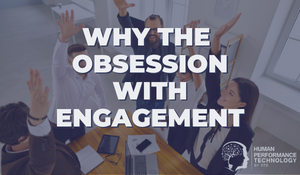Why Marriages Fail. What Teams Can Learn. (The Magic Ratio)
You may have heard of Dr. John Gottman. He has become known around the world for devising a ratio that allows him to predict, with about 90% accuracy, whether a newlywed couple will remain married or be divorced 4-6 years later. (Previously featured on 60 Minutes Australia.) Dubbed the “magic ratio” — 5:1 positive to negative emotional events for a thriving marriage — which was determined by Gottman from analysing couples’ conversations during times of conflict.
“If you take a look at the ratio of positive stuff during conflict, things like interest, asking questions, being nice to one another, being kind, being affectionate, being empathetic, and you look at all the negative stuff like criticism, hostility, anger, hurt feelings, and you take the ratio of positive to negative, in relationships that stay together that ratio turns out to be 5 to 1. There’s five times as many positive things going on in relationships that work as negative... In couples that wound up divorced that ratio was 0.8 to 1.” —Gottman
There's also another ratio that's gaining note in the field of positive psychology called the Losada ratio.
Martin Seligman, one of the founders of the positive psychology movement, discusses the work of Marcial Losada and Barbara Fredrickson in his bestselling book, Flourish (2011). It’s suggested that the critical minimum positivity ratio in business is 2.9:1. Fredrickson is quoted as saying: “Companies with better than a 2.9:1 ratio for positive to negative statements are flourishing. Below that ratio, companies are not doing well economically.” (Flourish, p66-67.) However, it's important to note that the mathematics underpinning the 3:1 Losada ratio is not uncontested.
Is relentless positivity in the workplace the answer then?
No.
“… don’t go overboard with positivity. Life is a ship with sails and rudder. Above 13:1, without a negative rudder, the positive sails flap aimlessly, and you lose your credibility.”
In each relationship, personally and professionally, there is an apparent sweet spot. Not too high, not too low.
Why isn’t Gottman's ratio or Losada's ratio 1:1 or 1.3:1?
Why the lop-sidedness?
It's because humans naturally respond to negativity much stronger than positivity.
In psychology, there is a name for this. It’s called a negativity bias (humans have a greater recall of unpleasant memories compared with positive ones). We’re born with it. It’s an evolutionary quirk that has hard-wired our brains to pay attention to potential threats lurking in our environment. Remember, humans are wired for survival, not happiness. We pay attention to threats.
For example, if you were to meet up with a friend at a party and they happened to compliment your appearance, and a few minutes later another friend insulted the way you look, which is more likely to get your full attention? The compliment by itself might make you feel good for an hour or even a day, but you are much more likely to remember the insult. It’s a perceived threat to your social acceptance and perhaps even your potential to find a mate — so it replays over and over for days, weeks or even years.
So what’s the lesson here? We need to reduce negativity in our lives?
No.
It’s unrealistic to suggest that we can easily avoid conflict, stress or negativity in our lives. The research tells us that for a relationship to be in a thriving state, a significant amount of positivity is required to balance against the over-weighted power of negativity.
The right advice has more to do with increasing positive feelings than decreasing negative ones.
This requires awareness, effort, empathy and communication. In short, it’s about emotional intelligence.
Topics:
Emotional Intelligence
Theo Winter
Client Services Manager, Writer & Researcher. Theo is one of the youngest professionals in the world to earn an accreditation in TTI Success Insight's suite of psychometric assessments. For more than a decade, he worked with hundreds of HR, L&D and OD professionals and consultants to improve engagement, performance and emotional intelligence of leaders and their teams. He authored the book "40 Must-Know Business Models for People Leaders."



We Would Like to Hear From You (0 Comments)